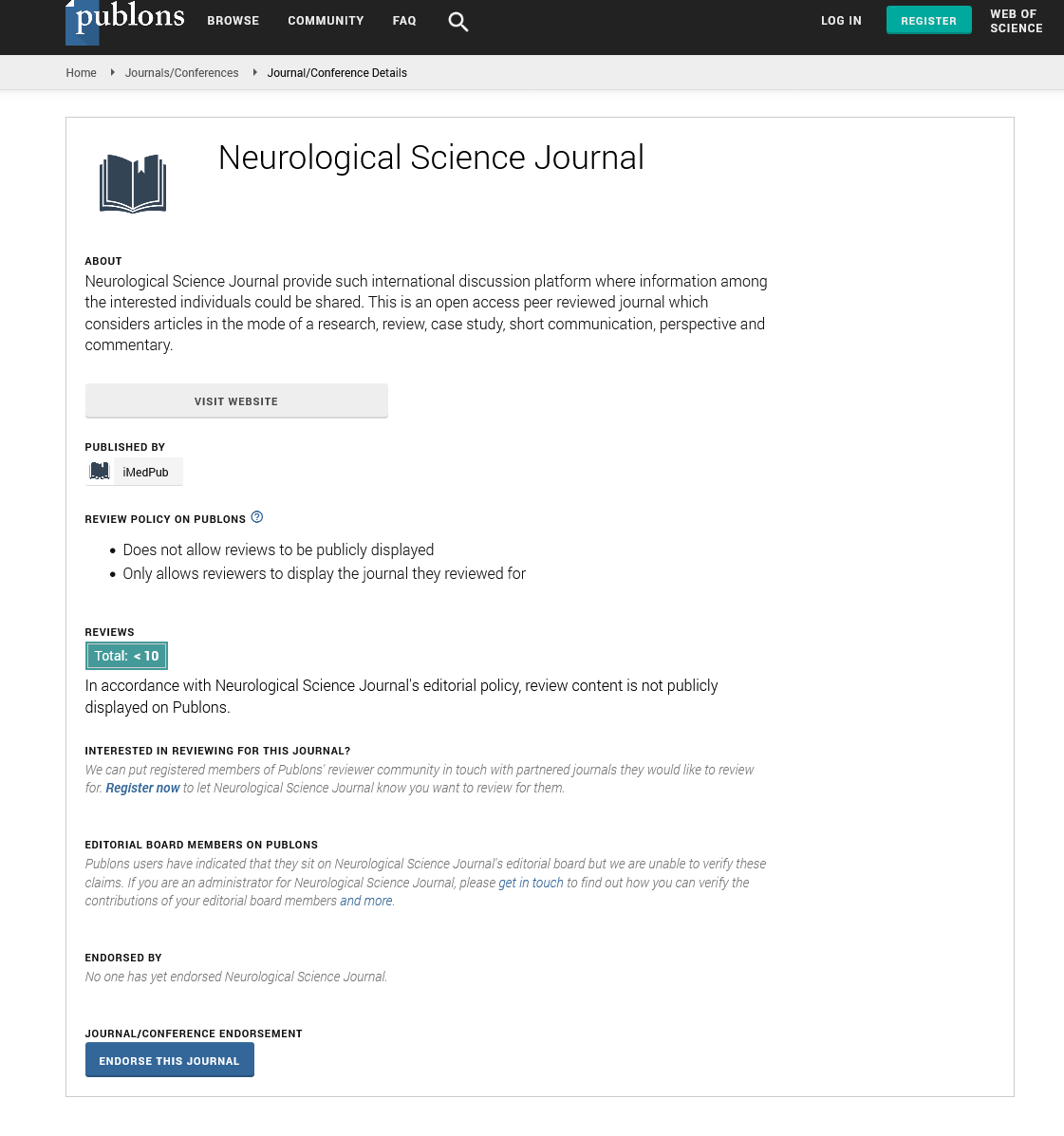Abstract
Management of chronic daily headache with focus on botulinum toxin type - Nigora Kadyrkhodjayeva - Tashkent Medical Academy, Uzbekistan
Goal:
The purpose of the study was to review the efficacy, safety and tolerability of botulinum toxin A (BTX-A) as a prophylactic treatment in adults with chronic daily headache (CDH).
Material and methods:
The study involved 100 patients with CDH comparing between two groups of patients. Group I, 54 patients (31 women and 23 men) treated by BTX-A, and group II, 46 patients (27 women and 21 men) treated with the classical method, with an average age of 35 ± 9 years.
Results: After 3 months headache severity in group I: 2 (3,7%) patients had no changes, 7 (12,9%) patients with less than 50 percent reduction in pain, 23 (42,6%) reported 70 to 95 percent pain relief, and 22 (40,8%) had complete relief. Group II: 12 (26,1%) patients had no changes, 16 (34,8%) patients with less than 50 percent reduction in pain, 10 (21,7%) reported 70 to 95 percent pain relief, and 8 (17,4%) had complete relief. The mean change from baseline frequency of headaches ranged from 3 ± 1 headaches per 30â?Âday period in group I and 7±2 headaches in group II.
Conclusion:
In this study, BTX-A injections have been shown to be safe, well â?Âtolerated, not any treatment-related serious adverse events reported. BTX-A injections recommended optimizing clinical outcomes for patients with CDH without using other prophylactic medications.
Author(s): Nigora Kadyrkhodjayeva
Abstract | PDF
Share This Article
Google Scholar citation report
Citations : 11
Neurological Science Journal received 11 citations as per Google Scholar report
Neurological Science Journal peer review process verified at publons
Abstracted/Indexed in
- Google Scholar
- Publons
Open Access Journals
- Aquaculture & Veterinary Science
- Chemistry & Chemical Sciences
- Clinical Sciences
- Engineering
- General Science
- Genetics & Molecular Biology
- Health Care & Nursing
- Immunology & Microbiology
- Materials Science
- Mathematics & Physics
- Medical Sciences
- Neurology & Psychiatry
- Oncology & Cancer Science
- Pharmaceutical Sciences
